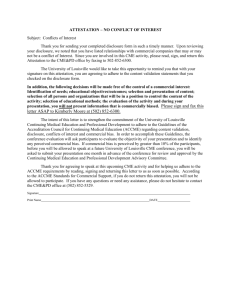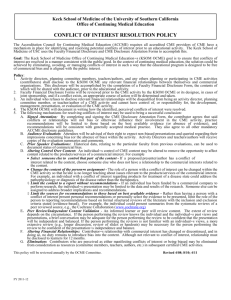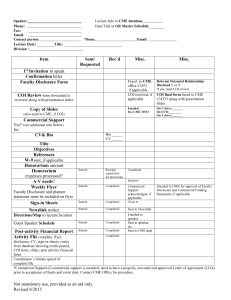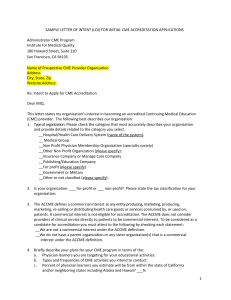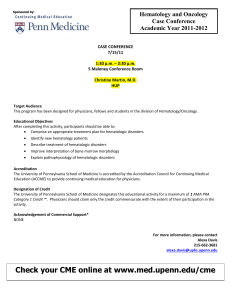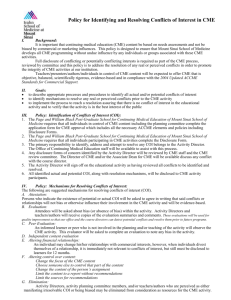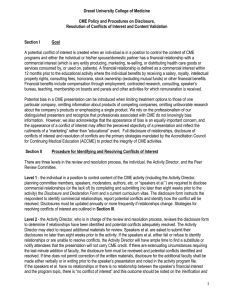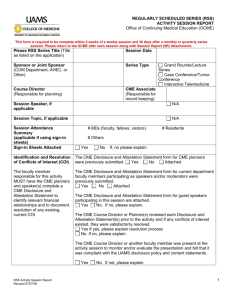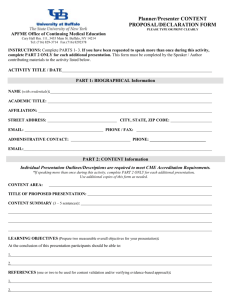CME Conflict of Interest Policy - Office of Continuing Medical
advertisement
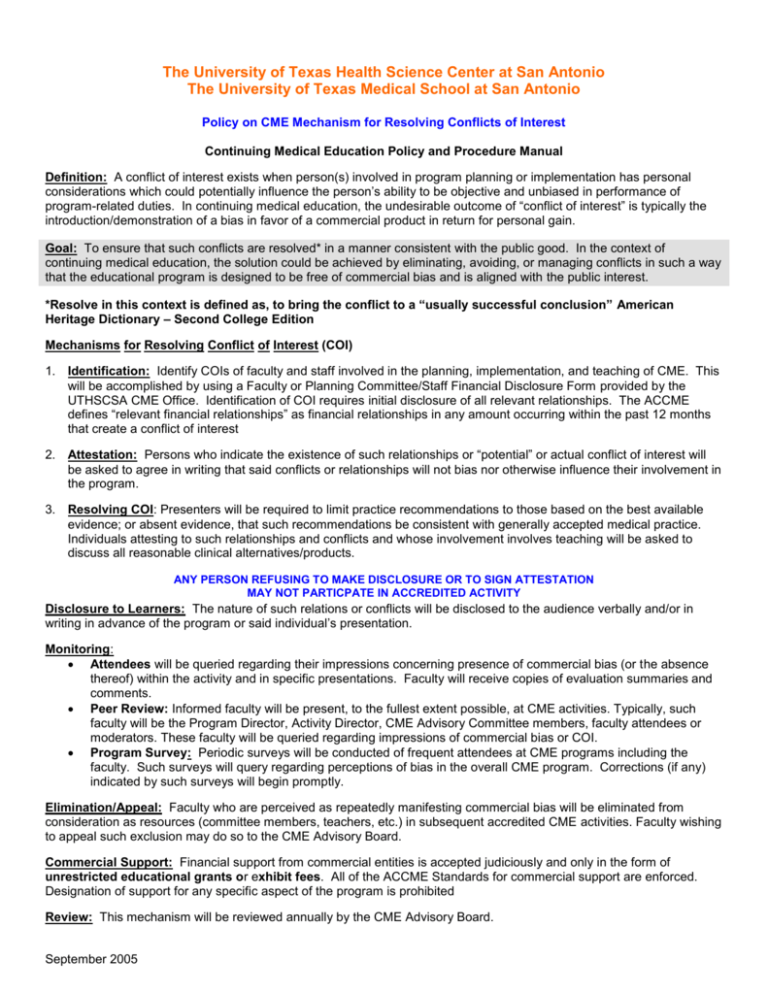
The University of Texas Health Science Center at San Antonio The University of Texas Medical School at San Antonio Policy on CME Mechanism for Resolving Conflicts of Interest Continuing Medical Education Policy and Procedure Manual Definition: A conflict of interest exists when person(s) involved in program planning or implementation has personal considerations which could potentially influence the person’s ability to be objective and unbiased in performance of program-related duties. In continuing medical education, the undesirable outcome of “conflict of interest” is typically the introduction/demonstration of a bias in favor of a commercial product in return for personal gain. Goal: To ensure that such conflicts are resolved* in a manner consistent with the public good. In the context of continuing medical education, the solution could be achieved by eliminating, avoiding, or managing conflicts in such a way that the educational program is designed to be free of commercial bias and is aligned with the public interest. *Resolve in this context is defined as, to bring the conflict to a “usually successful conclusion” American Heritage Dictionary – Second College Edition Mechanisms for Resolving Conflict of Interest (COI) 1. Identification: Identify COIs of faculty and staff involved in the planning, implementation, and teaching of CME. This will be accomplished by using a Faculty or Planning Committee/Staff Financial Disclosure Form provided by the UTHSCSA CME Office. Identification of COI requires initial disclosure of all relevant relationships. The ACCME defines “relevant financial relationships” as financial relationships in any amount occurring within the past 12 months that create a conflict of interest 2. Attestation: Persons who indicate the existence of such relationships or “potential” or actual conflict of interest will be asked to agree in writing that said conflicts or relationships will not bias nor otherwise influence their involvement in the program. 3. Resolving COI: Presenters will be required to limit practice recommendations to those based on the best available evidence; or absent evidence, that such recommendations be consistent with generally accepted medical practice. Individuals attesting to such relationships and conflicts and whose involvement involves teaching will be asked to discuss all reasonable clinical alternatives/products. ANY PERSON REFUSING TO MAKE DISCLOSURE OR TO SIGN ATTESTATION MAY NOT PARTICPATE IN ACCREDITED ACTIVITY Disclosure to Learners: The nature of such relations or conflicts will be disclosed to the audience verbally and/or in writing in advance of the program or said individual’s presentation. Monitoring: Attendees will be queried regarding their impressions concerning presence of commercial bias (or the absence thereof) within the activity and in specific presentations. Faculty will receive copies of evaluation summaries and comments. Peer Review: Informed faculty will be present, to the fullest extent possible, at CME activities. Typically, such faculty will be the Program Director, Activity Director, CME Advisory Committee members, faculty attendees or moderators. These faculty will be queried regarding impressions of commercial bias or COI. Program Survey: Periodic surveys will be conducted of frequent attendees at CME programs including the faculty. Such surveys will query regarding perceptions of bias in the overall CME program. Corrections (if any) indicated by such surveys will begin promptly. Elimination/Appeal: Faculty who are perceived as repeatedly manifesting commercial bias will be eliminated from consideration as resources (committee members, teachers, etc.) in subsequent accredited CME activities. Faculty wishing to appeal such exclusion may do so to the CME Advisory Board. Commercial Support: Financial support from commercial entities is accepted judiciously and only in the form of unrestricted educational grants or exhibit fees. All of the ACCME Standards for commercial support are enforced. Designation of support for any specific aspect of the program is prohibited Review: This mechanism will be reviewed annually by the CME Advisory Board. September 2005
